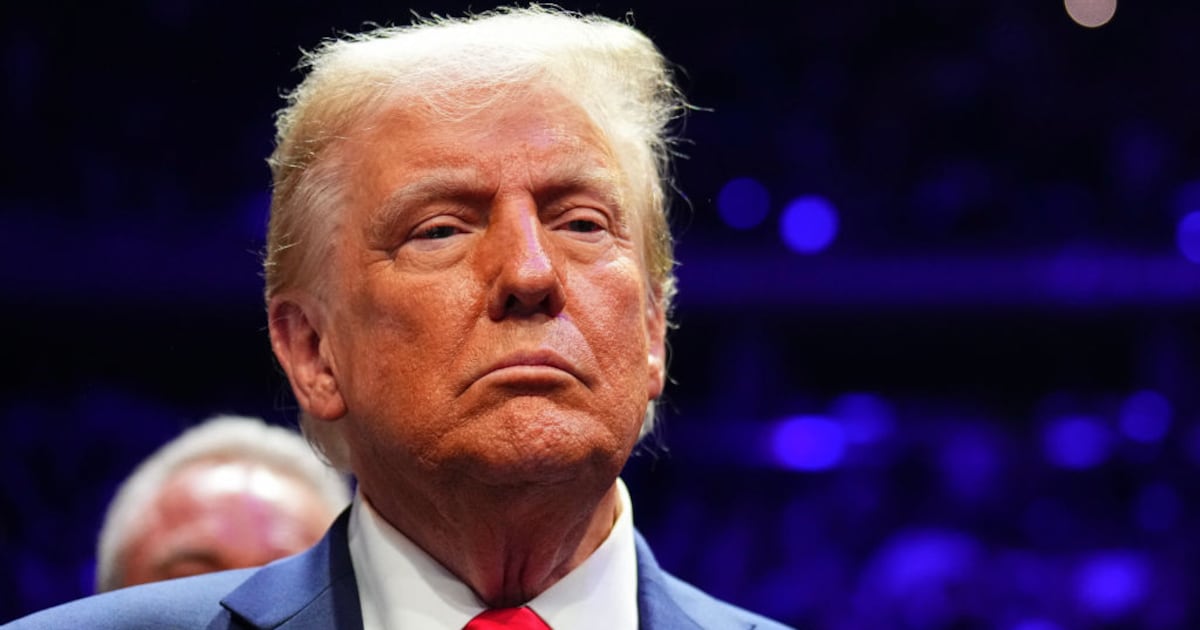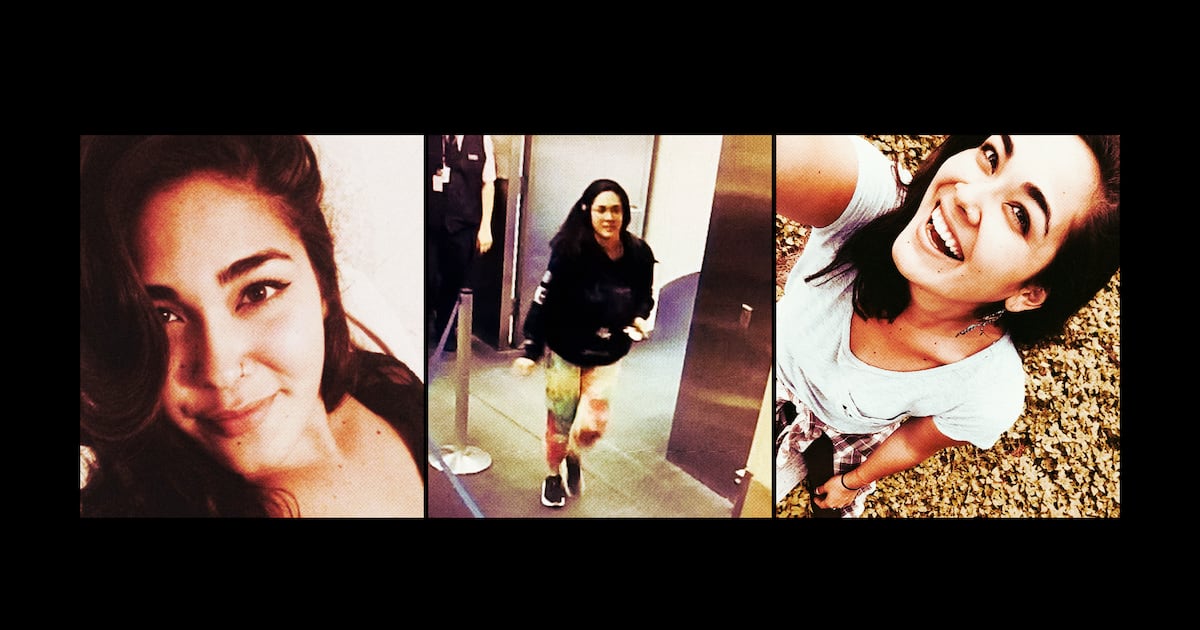The United Service Organizations, the charity better known simply as the USO, celebrates its 70th anniversary Thursday with a star-studded celebration in Washington. The Daily Beast rifled through the famed charity’s archives looking for enduring anecdotes, and interviewed some of Hollywood’s biggest stars to come up with some of their favorite memories about entertaining American troops.
A Legacy of Hope
From its earliest days at the advent of World War II, the USO dispatched America’s most famous performers to far-off places to give troops a hearty laugh and a glimpse of the good life back home. The list of early participants reads like a who’s who of Hollywood: Marlene Dietrich, Fred Astaire, Jack Benny, John Wayne, Roy Rogers and Elizabeth Taylor, to name just a few.
ADVERTISEMENT
But no celebrity became more associated with the military charity than the late comedian Bob Hope, whose annual Christmas special with frontline troops from Berlin to Saigon was a staple of American television for three decades. Hope volunteered for nearly 200 USO performances, often donning Army fatigues and a military cap when in a war theater, to find common ground with the men and women he was honoring. With his trademark golf club frequently in hand and a TV beauty by his side, Hope would launch an irreverent tirade of jokes that found humor in the misery of war.
“MPs, surround this boy with Punji sticks,” Hope teased a soldier who acted as an “interpreter” for a Peruvian beauty queen on a 1967 “husband-hunting” mission in Vietnam. Hope’s quip drew roars from members of the 101st Airborne, their guns propped by their sides in a dusty field turned into a makeshift theater.
The British-born comedian got involved with the organization shortly after it was incorporated in February 1941. Three months later, Hope broadcasted his radio show from March Field, a military base in California, in front of a live studio audience. Soon, he took his show overseas, visiting U.S. forces in North Africa, Europe and the South Pacific during World War II.

For five decades in times of war and peace, Hope crisscrossed the globe visiting troops in places like Korea, Vietnam and Lebanon. He made his last tour at the age of 87, visiting troops in Saudi Arabia in December 1990, during the lead-up to the first Gulf War. His last visit was his most scripted, as the Pentagon reined in his jokes and prohibited women—with the exception of Hope’s wife—from performing to avoid offending local Muslim customs.
Hope’s lifelong commitment to the USO was honored in 1996, when Congress designated him America’s first honorary veteran. The comedian often referred to himself as the Army’s “ski-nosed Western Union” because he felt like a messenger keeping the troops connected to friends and family back home.
The Colbert Haircut
Stephen Colbert’s trip to Iraq in 2009 marked many firsts for the USO. It was the first time an entertainer broadcasted a fake-news program from a war zone. It was the first time a four-star general shaved someone’s head on stage inside one of Saddam Hussein’s former palaces. And, it was the first time the commander-in-chief ordered a buzz cut on national TV.
It was Colbert’s idea to take clippers to his perfectly coiffed anchor hair –a gesture he hoped would help him bond with the troops.

“I thought, ‘What could I do that would immediately try to be an icebreaker with the audience,’” Colbert says. “I’m not one of them, and I could never be one of them, but what can I do as a gesture to try and establish some sort of rapport with them?”
The bit came together very quickly. Colbert asked Gen. Ray Odierno, the top U.S. commander in Iraq, to do the honors.
At the same time, they were looking for a way to involve President Obama. One of Colbert’s producers suggested the president order the haircut. Everyone agreed to the plan (even the head writer, who had his head shaved by Odierno during rehearsal). The rest, as they say, is history.
“It was a small thing, but it kicked off the week nicely,” says Colbert. “The soldiers loved it. They kept rubbing my head.”
A New Mission Between Tours
When the USO began, its primary focus was on supporting troops in the war zones by providing care packages, letters and comic relief. But over the decades, the organization’s focus has expanded to supporting families during deployment, aiding wounded warriors when they return, and helping grieving relatives cope with loss.
Wayne Newton, the Las Vegas icon and one of the organization’s longest-serving entertainment volunteers, has been at the forefront of the expansion.

Since his first overseas tour in 1966, Newton has made more than 60,000 calls to family members and friends of troops he met, passing along expressions of love, battlefront updates and even inside jokes.
It’s usually a fun mission, though three years ago it was fraught with peril when Newton sought to pass on a message from a soldier in Iraq to a girlfriend back home.
“I get this lady on the phone,” Newton says, chuckling. “I said, ‘Hi, this is Wayne Newton,’ and she said, ‘Oh, sure it is,’ and she hung up.”
The singer called back and persuaded the woman to stay on the phone.
“I said, ‘The note reads: Sweetheart, will you marry me,’ and there was silence,” he continues. But she eventually responded.
“’I have waited 18 years for that son-of-a-bitch to ask me to marry him and now he chickens out and has you do it,’” Newton recalls the woman saying. Ultimately, though, there is a happy ending. The woman eventually says “Yes!”
The USO Women: Blondes, Bombshells and Business Ladies
The USO was never shy about bringing “Pinup Patriots” to consort with war-weary troops. If there were any doubt about why, the iconic photos of Marilyn Monroe engulfed in a sea of smiling soldiers in Korea in 1954 offer an explanation.

Through the years, America’s hottest female stars—from Ginger Rogers and Rita Hayworth to Judy Garland and Raquel Welch—volunteered to entertain the troops. As the years rolled on and the role of women in entertainment and the armed forces evolved, a new breed of female star hit the USO stage, known as much for their business savvy as their good looks.
“It’s no longer standing on a stage to men’s wolf whistles and cat calls,” says Rose McGowan, the star of the hit TV series Charmed and Nip/Tuck who went to Afghanistan in 2010. “A nice firm handshake and a smile go a long way with both genders.” Recently, such stars as Jennifer Lopez, Carrie Underwood, and Chelsea Handler have visited the troops.

For Tichina Arnold, one of the stars of TV’s “Everybody Hates Chris,” meeting female soldiers has been one of the highlights of her many USO visits. As the numbers of women serving overseas has grown, female performers have given them an outlet to express themselves. Arnold remembers one conversation with a female soldier who felt guilty about missing her child’s birthday. “’From one mother to another,’ I said ‘You’ve got to think of the big picture,’” Arnold recalls. “We never think about the women who are serving and are separated from their children. That’s one of the reasons I work with the USO.”
Reminding America of the Cost of War
Those who travel to the forward bases of a war front play a second role educating Americans about the costs of war.
Country singer Toby Keith has done so with hit music, like his ballad, “American Soldier,” and by relating experiences such as his USO trip to Iraq in June 2004, shortly after U.S. forces seized Fallujah from insurgents.

Keith’s trip started with a stop at Camp Cooke, a smaller outpost on the outskirts of Baghdad. It was dark. The sun had set, but the temperature was still 120 degrees. A couple hundred troops were lined up ready to meet Keith. They were tired. Some were covered in dirt from head to toe. Others still had the 100-pound packs on their backs.
The mood was somber.
“They had just lost four guys,” recalls Keith, who took all jokes out of his routine to avoid seeming disrespectful. “I didn’t want it to look like we were having too much of a good time.” After a half-hour show, he moved onto Fallujah, where he serenaded several hundred more soldiers in a burned theater.
Several days later, on his way out of Baghdad, Keith got bumped off a C-130 transport by a handful of senators. So, he and his band boarded a later flight bound for Kuwait. As soon as they got on the plane, they were asked to step off.
“They asked us to stand in formation with them, and they loaded a flag-draped casket onto the C-130,” Keith recalls. “It was one of the four guys they lost at Camp Cooke. His name was 1st Lt. Erik McCrae. They were sending him home to his family. I’ll never forget his name.”
Aboard the C-130, Keith and his band mates wound up sitting on opposite sides of the casket. “I wish I could have taken a picture of their faces. They looked so sad,” Keith adds. “I wish the world could have seen this. It was the biggest dose of reality.”
Sowing Healing, Connecting Two Worlds
In his hit TV series CSI: New York, Gary Sinise plays a police detective who lost his wife in the Sept. 11, 2001 attacks. As a veteran USO volunteer with more than five dozen tours, Sinise accompanied three real 9/11 family members on a trip to Baghdad and returned with an indelible memory.
The weather that June 2003 day was hot—140 degrees—and about 6,000 troops had packed into a hangar to see the visitors. “It was crazy,” recalls Sinise. “It was like a sauna, but they were very eager to have some entertainment. They’d been fighting for weeks to get into Baghdad.”

Sinise can’t recall his message to the troops that day, but he clearly remembers one of the Sept. 11 family members pulling out of his pocket a palm-sized chunk of concrete from the buildings that collapsed in Manhattan.
“The soldiers were passing it person to person,” Sinise recalls. “It just went all over this crowd of thousands of people, and then it made its way back to the stage safely.”
For the troops, the concrete became a powerful reminder of what they were fighting for.
Athletes In Action
In increasing numbers, athletes have been asked to lend their stardom to entertaining and inspiring troops, especially those wounded warriors facing long recoveries at military hospitals and rehabilitation centers.
On USO overseas tours, sports stars are quickly surrounded by soldiers craving the inside scoop about their favorite teams. “Everybody wants to talk to you and see how things are going back home,” says Larry Fitzgerald, a wide receiver with the Arizona Cardinals. “They don’t get a lot of news or watch much TV, so they ask a lot of questions—especially about the season.”

The rewards can flow both ways.
Growing up, Super Bowl-winning quarterback Drew Brees tried to understand what it was like for his maternal grandfather, Ray Akins, to storm the beaches of Okinawa during World War II. Brees was able to extract only a few stories from his grandfather, who like most men of the Greatest Generation was reluctant to share much.
That all changed when Brees went to Okinawa in the spring of 2008 on a USO trip. The quarterback called his grandfather from the island, and Akins, who was a 19-year-old Marine when the infamous World War II Pacific battle began, opened up.
“His description was amazing,” says Brees, noting that the conversation never would have happened if he didn’t have a chance to go on the tour. “You’re storming the beach and there are bullets whizzing by your head, bombs going off everywhere and you’re taking on all this fire. And, I’m sitting there trying to imagine what that was like.”
The New Orleans Saints quarterback burst into tears as Akins recounted the horrors, including the time he approached an enemy pillbox, getting so close that he could see the eyes of a Japanese gunner through a slit in the concrete. The soldier pointed a rifle at Akins’s head and pulled the trigger. But he was out of ammo. Akins jumped into the bunker and killed the guy.
“If he had one more bullet, my grandfather wouldn’t be here,” Brees says. “You start thinking how lucky we all are.”





